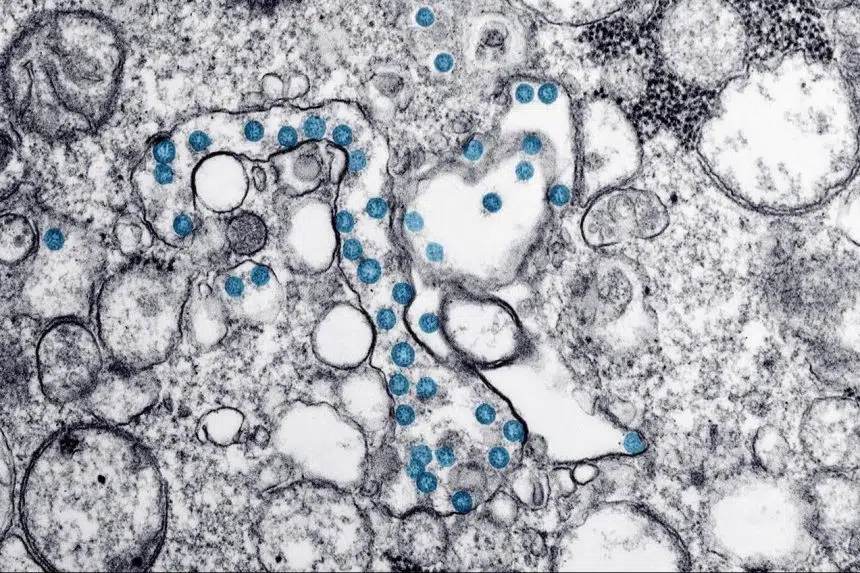OTTAWA – The Canadian researcher who was among the first to predict the deadly spread of COVID-19 says the world needs to change the way it monitors for and reacts to disease outbreaks.
Dr. Kamran Khan set out to make a “smoke alarm” that would detect disease outbreaks around the world when he created his pandemic-predicting software BlueDot.
Khan and his team of about 50 experts used big data and artificial intelligence to warn the world of a potentially serious viral outbreak three days before the World Health Organization, though they picked up on the signs even earlier.
Waiting for outbreaks to be declared typically takes too long, the University of Toronto professor of medicine and public health says, and the information often takes a long time to make it into the hands of the medical community and the public.
The world is changing, he says, and diseases are emerging with greater frequency and having bigger impacts.
Big data and artificial intelligence can provide a bird’s-eye view of diseases around the globe in real time, letting people move faster to quash new outbreaks.
It’s time we start using them, for the second wave of the COVID-19 pandemic and beyond, Khan says.
By this point, BlueDot’s story is famous around the world.
The software scours hundreds of thousands of sources of information in 65 languages around the world all day, every day, to look for signs of trouble.
Khan received the first indication something was amiss in Wuhan, China, on New Year’s Eve. The algorithm picked up a blog post in Chinese describing a pneumonia outbreak involving about 20 people.
Within seconds, the program was able to sift through anonymized international flight itineraries to predict 20 places the outbreak might spread.
The outbreak the algorithm described bore serious similarities to the 2003 SARS outbreak. Khan and his team submitted their findings in a peer-reviewed scientific journal on Jan. 6.
By the time the virus showed up in Bangkok, Thailand, on Jan. 13, the smoke alarm was ringing.
“If you see a case show up outside of Wuhan in another country, it’s telling you that the outbreak is much bigger than a couple dozen cases. Maybe hundreds, maybe thousands,” Khan says.
“That’s the moment we were quite concerned.”
Of the 20 places BlueDot predicted the virus could spread, 12 were among the first destinations to report outbreaks of the novel coronavirus.
The embers landed in Canada, and the house has caught fire.
While Canada’s health-care system has struggled even to count the number of manually confirmed cases across the country due to archaic data gathering systems, Khan’s team in Toronto have used their technology to measure how well people have been sticking to public health advice.
Using anonymized cell phone data, they’ve been tracking how much people have been moving about as health officials urge them to stay home.
Khan refers to this as the “fire extinguisher” function of big data during a pandemic, allowing public health authorities to target their efforts where they’re needed most.
“When there’s only so many people, your human resources in the public health sector are finite, you can’t be everywhere,” he says.
As Canada gets farther from the crest of the first wave of the pandemic, and people begin moving around the country and around the world again, the smoke alarm is going to be important, Khan says.
“We’re going to be thinking about introductions from other parts of the globe and trying to make sure that those embers are kind of snuffed out as quickly as possible,” he says.
This time, he hopes governments, institutions and individuals will be able to take smarter steps more quickly.
“We need to be using the latest in data and digital technologies to our advantage to do that,” he says.
What we do with the information also needs to change, he says.
Typically when a new outbreak is reported, public-health officials find out first. They share the information with governments, which then share it with the medical community and eventually the public and industry become aware.
That cascade of information means delayed reactions.
“If we are going to be able to be successful, we are going to have to empower the whole of society,” Khan says.
And if COVID-19 has taught us anything, it’s that everyone needs to work to extinguish the fire together, he says.
Laura Osman, The Canadian Press







